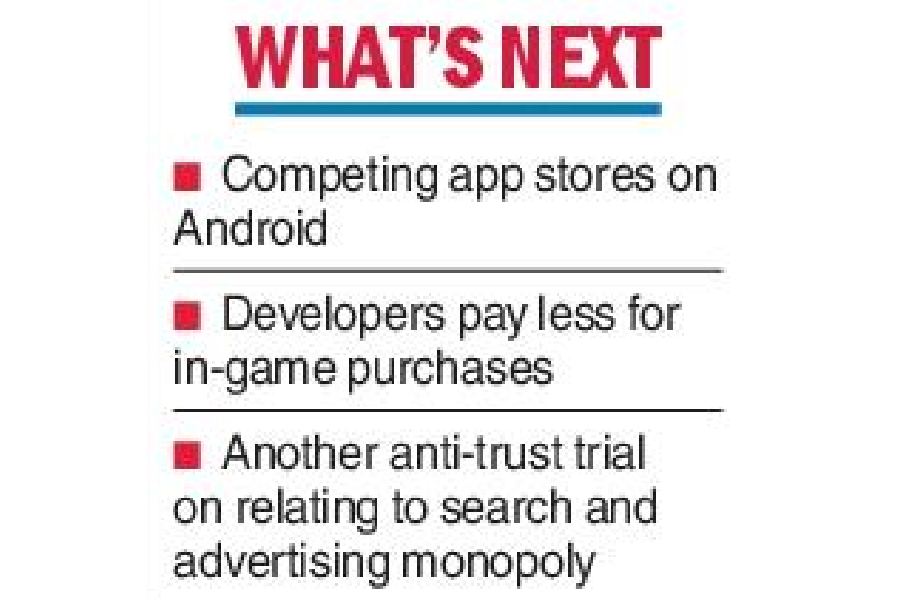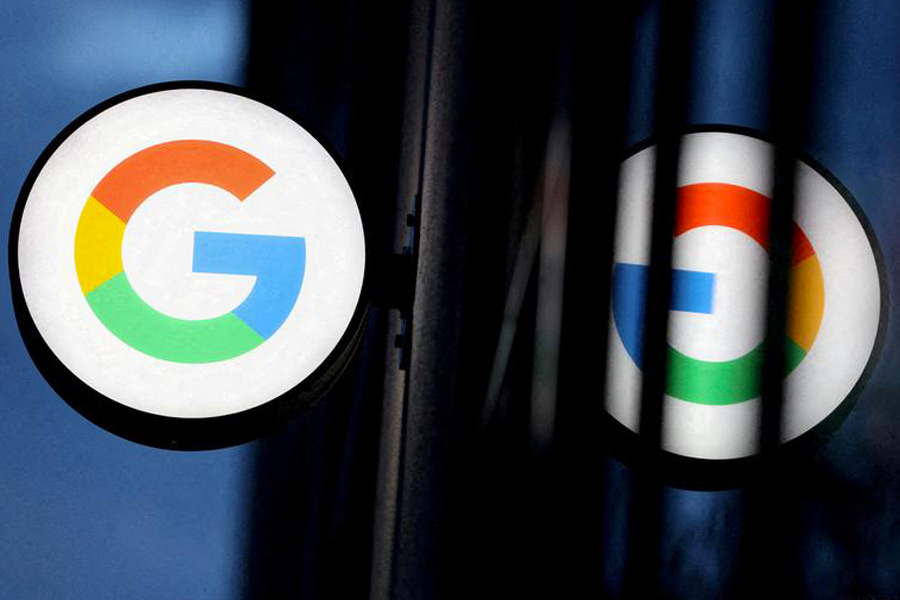A jury ruled Monday that Google had violated antitrust laws to extract fees and limit competition from Epic Games and other developers on its Play mobile app store, in a case that could rewrite the rules on how thousands of businesses make money on Google’s smartphone operating system, Android.
After deliberating for a little more than three hours, the nine-person federal jury sided with Epic Games on all the 11 questions in a month-long trial that was the latest turn in a three-year legal battle.
The jury in San Francisco found that Epic, maker of the hit game Fortnite, proved that Google had maintained a monopoly in the smartphone app store market and engaged in anticompetitive conduct that harmed the video game maker.
Google could be forced to alter its Play Store rules, allowing other companies to offer competing app stores and making it easier for developers to avoid the cut it collects from in-app purchases.

Judge James Donato of the US District Court for the Northern District of California will decide the remedies needed to address Google’s conduct next year. Google said it would appeal the verdict.
Throughout the trial, Google’s lawyers and executives had argued that it competed against Apple’s App Store, which is more popular in the United States, making it impossible to operate an Android monopoly.
The verdict provided a lift to Epic’s year-long quest to weaken the power that Google and Apple have over the mobile app ecosystem and came two years after Epic mostly lost a similar case against Apple — a ruling that both sides are trying to appeal to the US Supreme Court. That verdict was decided by a judge.
In pursuing the case against Google, filed in 2020, Epic had sought to keep more of the revenue it generates from in-app purchases and offer an app store that would compete with Play on the Android operating system.
Google was fighting Epic’s claims at the same time that it was defending itself in another antitrust trial in Washington, D.C.
The Department of Justice and dozens of states have accused the company of illegally maintaining a search and advertising monopoly, in a landmark antitrust case that could reshape tech power when it is decided next year.
New York Times News Service











